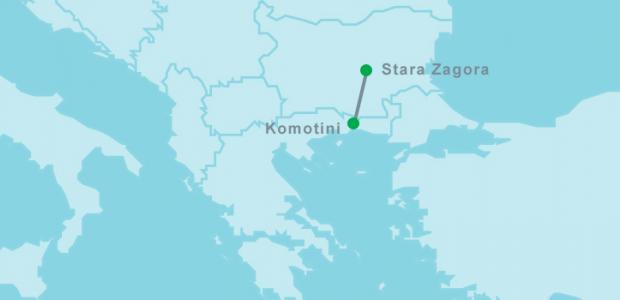The Syriza coalition’s more recent realpolitik approach to energy matters, a far cry from former energy minister Panos Lafazanis’s obsession focused on nurturing closer ties with Russia, helped pave the way towards yesterday’s deal struck between Greece and Bulgaria on a final investment plan for the construction of the IGB natural gas pipeline interconnector.
The US played a key intermediary role over the past couple of months, initially through the efforts of Amos Hochstein, the US Special Envoy and Coordinator for International Energy Affairs, who recently visited the region, followed by Secretary of State John Kerry, who was in Athens last week. Both visits had been preceded by Greek Prime Minister Alexis Tsipras’s trip to the US in September, where he and Kerry held talks.
Yesterday’s highly anticipated deal, one of strategic importance and much delay, was signed in Sofia by Bulgarian Energy Holding and Greece’s IGI Poseidon.
The project is scheduled to interconnect the grids of both nations in 2018, initially serving as a supply route for Azeri natural gas, to reach Europe via the Greek segment of TAP, the Transadriatic Pipeline, as well as a route for US shale gas exports to be transported to a prospective LNG terminal in Alexandroupoli, northeastern Greece, in the form of LNG, before being distributed in Greece and the wider region.
However, the project’s sustainability will need to be confirmed through a sufficient number of consumers committed to long-term gas contracts before construction of the IGB interconnector can begin.
The IGB project is being heavily backed by the US, which wants to weaken Russia’s energy-sector dominance in the wider region and penetrate the market with American shale gas exports. The EU is also supportive. It will offer 48 million euros for the construction of the project, classified as a Project of Common Interest (PCI).
Greece also stands to gain as development of the IGB, along with the TAP project – to run roughly westward through Azerbaijan, Turkey, Greece, Albania, and across to Italy – and the prospective LNG terminal in Alexandroupoli, will all combine to offer the country major financial and geostrategic benefits that could establish Greece as a European natural gas hub.
If the IGB’s sustainability is secured over the next few months, as is scheduled, construction will begin in the second half of 2016, while the pipeline will be ready to operate in the second half of 2018, according to Greek energy minister Panos Skourletis.
The IGB pipeline is planned to run 182 kilometers, from Komotini, northeastern Greece, to Stara Zagora in Bulgaria. Its initial capacity will measure three billion cubic meters, annually, while provisions will be made for a future increase to five billion cubic meters.





